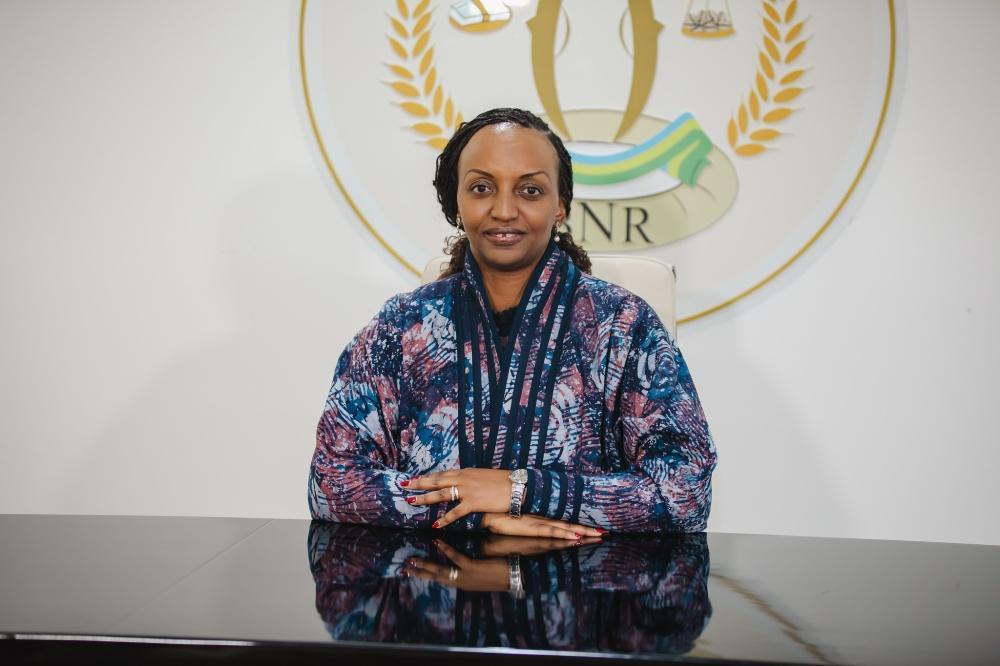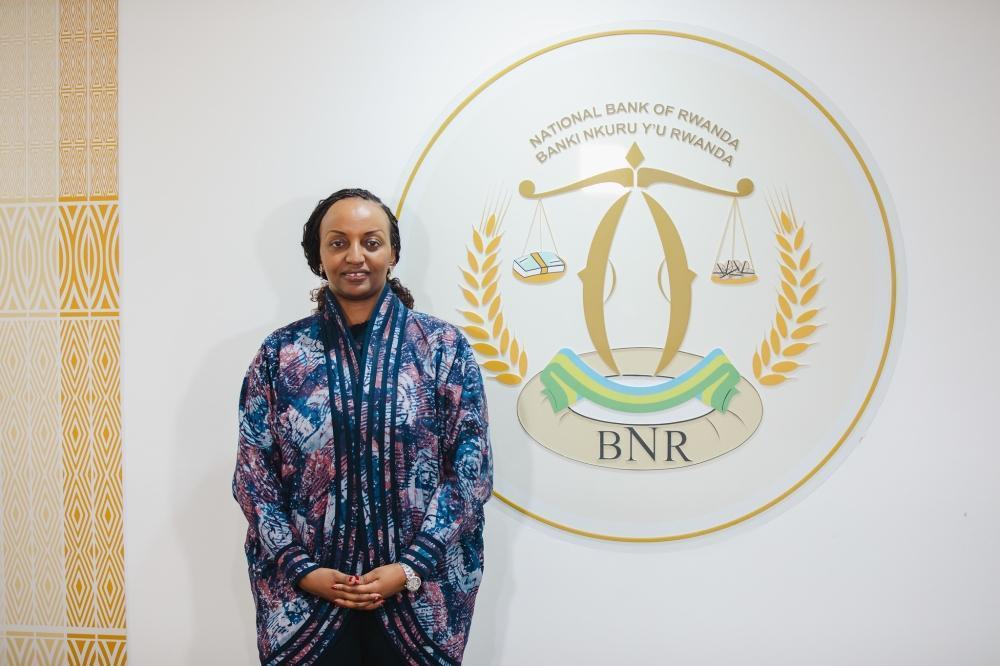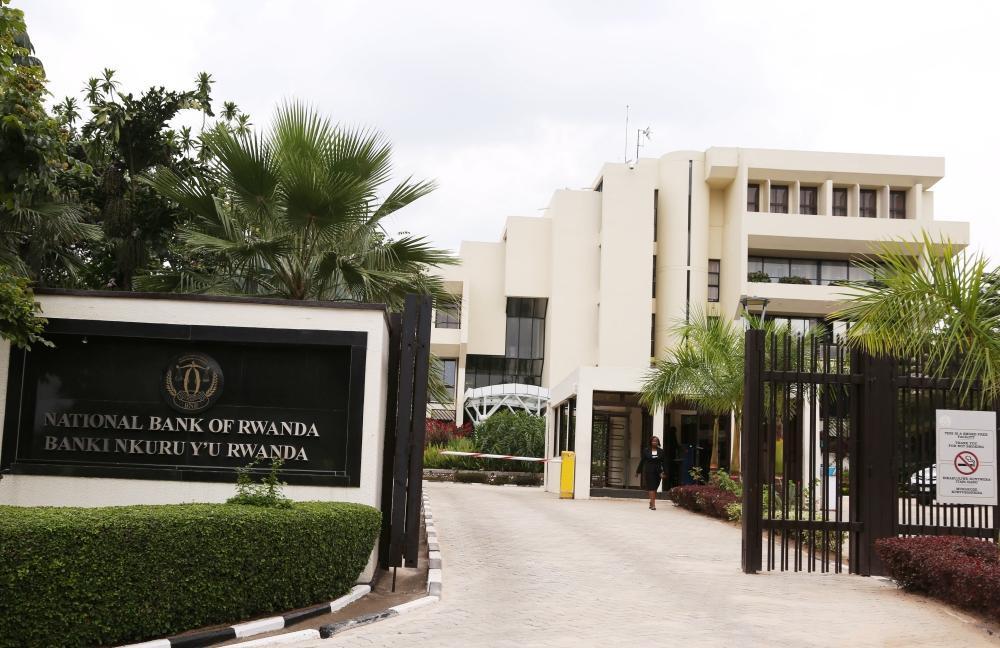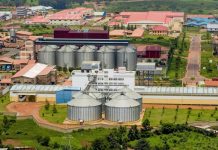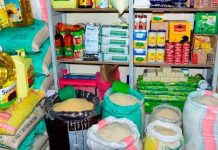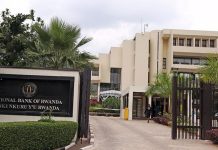Africa-Press – Rwanda. On February 25, Soraya Hakuziyaremye was appointed by President Paul Kagame as the first female Governor of the National Bank of Rwanda (BNR), succeeding John Rwangombwa who completed his two-term tenure that began in 2013.
With nearly four years of experience as Deputy Governor, a position she held before her appointment as top leader of the bank, Hakuziyaremye is poised to carry out the bank’s mission of safeguarding Rwanda’s financial stability.
Until Hakuziyaremye’s appointment, the bank which was established in 1964, BNR was led by male governors.
In an exclusive interview with The New Times, on February 27, she outlined her key priorities, focusing on enhancing price stability, promoting financial inclusion, and navigating the challenges posed by inflation and the Rwandan franc’s depreciation.
Below are excerpts:
What are you going to prioritise as the new central bank governor?
The first thing is to ensure continuity. As a central bank, we are charged with maintaining price stability and financial sector stability. That is the top priority, because from price stability and financial stability, then that’s when we start talking about economic growth. You cannot grow an economy if you don’t have macroeconomic stability.
Governor of the National Bank of Rwanda Soraya Hakuziyaremye
But we’ve enlarged our mission to also include promoting sustainable and inclusive growth. I’ve always had a passion for financial inclusion: how do we make sure that as we develop our financial sector, all Rwandans can benefit from financial services?
We’ve made a lot of progress in terms of people having access to bank accounts, mobile money accounts, what we call access to basic financial services.
But I think as a country we need to go further. How do we build financial resilience for our population so that you not only have a bankaccount, but you are able to save, invest, and plan for long term?
As a country, we should aim to have a population or citizens that look at wealth creation; create wealth for our children, and our grandchildren.
Last thing that we have started working on, even in my previous position as Deputy Governor, was the digital transformation of the central bank. You know that technology plays a great role in finance, and more services are now accessible digitally.
Lastly, but certainly not the least, we know that we started the Kigali International Financial Centre. So, I think my priority is to contribute to the growth of our International Financial Centre, having more players coming into our country in different areas, making sure that the central bank contributes meaningfully to the growth of our capital markets and stock market as well, because that’s really the foundation of a real International Financial Centre.
I know that we’ve already done some work in building on what the outgoing Governor John Rwangombwa has put in place. I’m pretty sure that we’ll also succeed in the next five to six years.
One of the remaining concerns is the depreciation of the Rwandan franc and high inflation. How do you plan to restore price stability?
It’s true that the last few years have been challenging, not only for Rwanda but globally, with high rates of inflation, especially in 2022, 2023. But when you look at how we’ve managed to contain inflation last year, where we had an annual rate of 4.2 per cent, which is really in our range, meaning between 2 per cent and 8 per cent.
I would say we are back to normal inflation rates.
Working with other stakeholders, but also using our monetary policy tools, we’re seeing that for 2025 and 2026, we’ll be around that 6.5 per cent forecasted for 2025.
On depreciation, we’ve had pressures on the exchange rate, but we know the reason behind. We’ve had a structural trade deficit, meaning that we export less than we import, but that is to be somewhat expected in a country that’s developing fast. There’s a lot of imports that we need for our development, especially in the manufacturing side, machinery, some raw material.
But there’s been, on the government side, initiatives and strategies to make sure that we can increase our export with a new export strategy, industrial policy for Rwanda. So, we’re working really with all key stakeholders to make sure that we can narrow that trade deficit, which then would stabilise our currency.
But we’re also promoting more investment in the country. That will also help. So, the pressures that we have had on our currency in 2023, where our depreciation [against the US dollar] reached 18 per cent, last year was down to 9 per cent. We’ve reduced it by half.
The Central Bank of Rwanda headquarters in Kigali. Sam Ngendahimana
I’m not saying it’s good news, but it’s a good trend. We’re seeing that in the medium term, we should go back to levels we used to have of a depreciation that is around 5 per cent, which we consider healthy for the economy that we have today.
What does it mean to you to be the first female central bank governor in the broader context of women’s leadership in finance and governance?
I think, of course, when you’re the first woman to lead an institution, it’s always pointed out. But I would think it’s an honor, it’s a privilege, but it’s also a result of policies that our country has taken, and the deliberate efforts to make sure that men and women in Rwanda have the same opportunities.
I also know that it’s a result of many other women that have worked in different sectors, but mostly in the central bank, and proved that they were capable of doing the job. If they had not done so, maybe people would still be skeptical about the fact that a woman is able to not only be a central banker, but probably lead a central bank. I’m very grateful for that opportunity, but I also have expectations to make sure that I continue to perform, and I’m sure I may not be the last woman central banker.
It gives gratitude for that opportunity, gratitude to those who came before me. You know that before that we had two female deputy governors, so they paved the way.
I’m hoping that I’m also paving the way for many more women that will lead, not only the central bank in Rwanda, but also other institutions, especially in finance.
For More News And Analysis About Rwanda Follow Africa-Press

